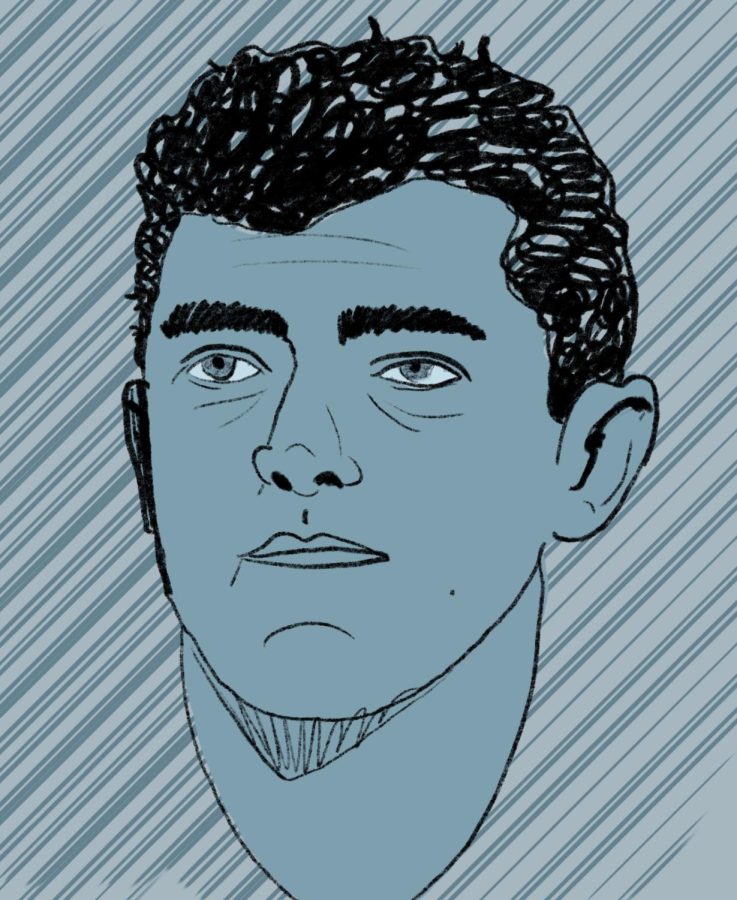Grading Chaim Bloom Through Two Years
February 6, 2022
On Halloween of 2019, the Boston Red Sox hired Chaim Bloom from the Tampa Bay Rays to take over as general manager. Now, over two years into Bloom’s tenure, which has been marked by many cheap, long-term moves, his management approach has starkly departed from that of his predecessor, Dave Dombrowski. Here is a look at the direction of the franchise under Bloom and his grades for each major category:
Free Agency/Waiver pickups: A−
Without much room to work with under the league’s competitive balance tax threshold, Bloom was restricted to cheaper signings through his first several years in Boston. Nevertheless, he has found several key bargains in free agency. In his first year, Kevin Pillar was signed for a mere $4.25 million before being flipped for a prospect, while Christian Arroyo was scooped off of waivers and would go on to be a valuable addition to the lineup as the team’s starting second baseman and utilityman through 2021. Bloom’s largest free agency signing came the next offseason when he signed Enrique Hernandez from the Dodgers for two years and $14 million. Hernandez would become a major success in Boston, playing valuable defense at second base and center field before going on a tear in the postseason with a 1.254 OPS. That same offseason, Hunter Renfroe was signed for another cheap $3.1 million deal for a season where he produced 31 homers and a league-leading sixteen outfield assists.
Still, other signings have not worked out quite as well, such as Garret Richards over other quality free-agent starting pitchers, or the addition of Marwin Gonzalez, who would go on to be cut. Despite these blemishes on Bloom’s record, his approach to free agency involving many lower-cost moves has kept these failures from significantly hurting the franchise. Bloom’s prudent spending thus far has made it imperative for him to flex his big market muscles in the future with larger deals to find more long-term, substantial solutions at middle infield and pitching, along with extending Rafael Devers. Until then, Bloom’s free agency grade will remain at an A−.
Trades: A
When Bloom was first hired by the Rays, he was known for his emphasis on long-term stability and consistent success over expensive contracts or trading prospects, a model that has brought remarkable success to the small-market Tampa Bay Rays. Aside from trading a well-regarded minor-leaguer in Aldo Ramirez for the power left-handed bat of Kyle Schwarber, the rest of the trades Bloom has made have been with payroll flexibility and strengthening of the farm system in mind.
Trading away fan favorites such as Mookie Betts and Andrew Bennintendi are seen by some as stains on his record, but they allowed the Sox to strengthen their farm system while maintaining payroll flexibility that could not have been accomplished with large extensions such as the one Betts signed with the Dodgers. For what it’s worth, both Betts and Bennintendi have played like shells of their former selves this past season.
Bloom’s best deal came at the 2020 trade deadline with the Phillies, when he landed a solid starting pitcher in Nick Pivetta, who posted a 2.63 ERA in the playoffs, and a minor league arm in Connor Seabold for the underachieving Brandon Workman and Heath Hembree. Workman and Hembree would go on to become remarkable failures in Philadelphia. With many impactful deals such as the ones for Schwarber or Pivetta, and many others that will surely pay dividends down the road in the form of greater prospects and spending power, Bloom earns an A in this category.
Drafts: A+
Bloom has made many great selections in the last few MLB Drafts, such as when he selected second baseman Nick Yorke 17th overall. It was considered a reach at the time, but Yorke is now a top 100 prospect in baseball per MLB Pipeline. The next year, Marcelo Mayer, who was considered to be the top option in the draft, slipped to 4th overall while the Red Sox had shown no hesitation in selecting him. Mayer is now ranked as the number nine prospect in baseball per MLB Pipeline. While selections such as Yorke and Mayer have bolstered the minor league system, the best-value selection Bloom made was when he took pitcher Garret Whitlock from the Yankees in last year’s rule 5 draft (where teams have the option to take unprotected minor leaguers from others provided that they are active a minimum of 90 days on the major league roster). Whitlock would go on to become Boston’s top reliever in 2021 with an ERA of 1.96, enough to garner him some rookie of the year consideration. While it may be too soon to tell, Bloom has made some fantastic additions all around in the draft, and therefore he has earned an A+ for this category.
It hasn’t taken long for the moves made by Bloom to take effect. Just a year removed from a dismal last-place finish in the AL East in 2020, the Sox found themselves two wins away from a World Series berth in 2021. Additionally, the improvement made to the farm system through the draft and trades has taken what was the worst-ranked system in 2019 all the way to a borderline top ten unit—according to MLB Pipeline—today.











